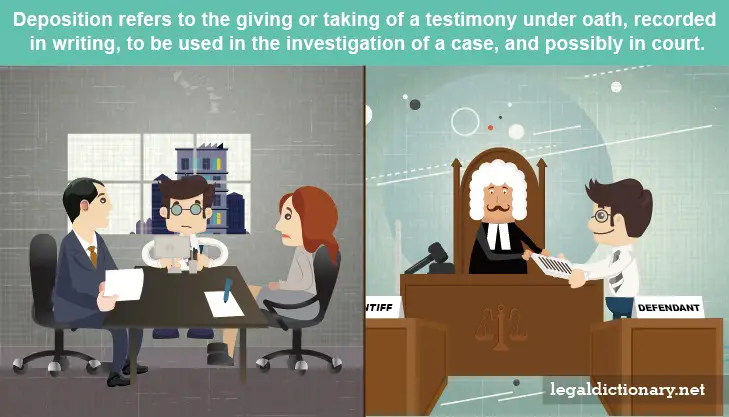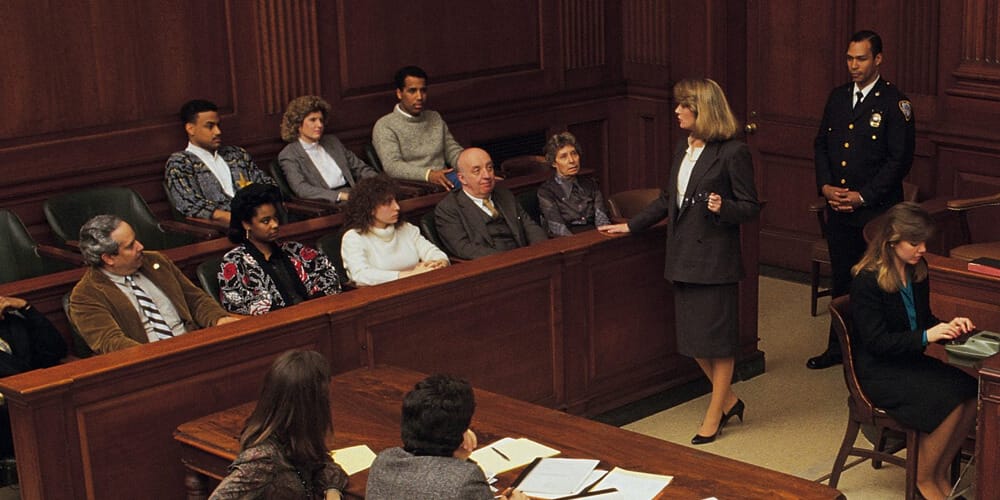Why Remote Depositions Are Coming To Be the Criterion in Modern Lawsuits
Why Remote Depositions Are Coming To Be the Criterion in Modern Lawsuits
Blog Article
Improving Adaptability and Cooperation in Legal Depositions using Remote Setups
The shift towards remote settings for lawful depositions presents a myriad of possibilities to boost adaptability and foster cooperation amongst lawful professionals. By exploring the benefits that remote depositions offer, it becomes evident that a brand-new period of lawful partnership is on the horizon.
Benefits of Remote Depositions
Remote depositions use lawyers the benefit of conducting promised statement beyond a physical setting, leveraging innovation to promote smooth partnership and adaptability. One essential advantage of remote depositions is the capability to depose witnesses from different geographical places without the requirement for travel, lowering prices and time constraints connected with conventional in-person depositions. This access additionally allows legal groups to collaborate with essential stakeholders or expert witnesses that may be situated in far-off areas, boosting the efficiency of the deposition procedure.
Additionally, remote depositions offer a secure system for sharing papers and evidence in real-time, enabling all celebrations involved to examine materials all at once. This function enhances cooperation among lawful groups, witnesses, and stenotype reporter, cultivating a more orderly and streamlined deposition experience. Furthermore, the adaptability provided by remote depositions suits unpredicted conditions and active routines, making it easier to set up and perform depositions at practical times for all parties included. Generally, the benefits of remote depositions add to an extra reliable, economical, and joint lawful procedure.
Enhancing Versatility Via Technology
Incorporating innovative technical services into the deposition process can dramatically enhance the flexibility and performance of legal process. One vital technological device that enhances flexibility is video conferencing software application. By permitting individuals to join from another location, no matter of their physical area, this technology eliminates the need for all celebrations to be in the same area. This flexibility is especially beneficial in circumstances where scheduling conflicts or travel limitations may arise. In addition, real-time transcription services can simplify the deposition process by supplying instant access to a written record of the procedures. This not just boosts adaptability by enabling participants to examine and refer back to the transcript throughout the deposition yet additionally enhances precision and decreases the danger of misconception. Additionally, cloud-based record sharing systems help with the smooth exchange of proof and exhibits, better improving flexibility by allowing all parties to accessibility and work together on files in real-time. By leveraging these technological devices, lawful professionals can enhance flexibility in depositions, leading to a lot more reliable and efficient process.
Facilitating Cooperation in Virtual Settings
Provided the raising dependence on sophisticated technical solutions to enhance versatility in lawful proceedings, the emphasis now shifts to checking out techniques for fostering effective cooperation in best site virtual settings. Helping with cooperation in digital settings requires careful consideration of several crucial variables to make certain smooth interactions among all participants. One critical element is the selection of a dependable virtual system that supplies features such as video conferencing, display sharing, and real-time conversation to support interaction and file sharing.

In addition, encouraging active participation and interaction from all celebrations entailed is essential for successful collaboration in online settings. Giving opportunities for feedback, conceptualizing sessions, and regular check-ins can cultivate a feeling of teamwork and drive in the direction of attaining the wanted end results. By carrying out these techniques, attorneys can properly enhance collaboration in online setups and enhance the browse around here general deposition procedure.
Conquering Geographical Obstacles
Browsing the challenges presented by physical distance in legal process necessitates cutting-edge solutions to assist in smooth interaction and collaboration among geographically distributed individuals. Overcoming geographical barriers in legal depositions is crucial for making sure that all entailed parties can proactively participate and contribute to the proceedings regardless of their place. By applying these services, lawful specialists can improve the adaptability and inclusivity of depositions, inevitably improving the overall efficiency and efficiency of the lawful process.

Transforming Legal Workflows
Successfully simplifying legal workflows with innovative approaches is necessary for improving performance and efficiency in the legal market. Revolutionizing lawful workflows entails leveraging innovation to automate regular tasks, boost communication, and enhance procedures. By incorporating case administration software, file automation tools, and e-discovery platforms, law practice can significantly increase performance and lower the probability of mistakes.
Executing cloud-based services permits lawyers to access data and team up in real-time from anywhere, breaking down typical office barriers and making it possible for remote work abilities - Remote Depositions. In addition, making use of virtual meeting systems for customer consultations, team conferences, and depositions conserves time and sources that would have been invested in traveling
In addition, embracing digital signatures and electronic paper monitoring systems accelerates the file evaluation and finalizing procedure, speeding up the general operations. By taking on these innovative innovations and methods, regulation companies can transform their operations, boost client complete satisfaction, and remain in advance in a significantly competitive lawful landscape.
Final Thought

The shift in the direction of remote setups for legal depositions presents a myriad of possibilities to enhance versatility and foster cooperation among lawful professionals (Remote Depositions).Remote depositions use legal specialists the benefit of conducting vowed testament outside of a physical setting, leveraging technology to facilitate smooth partnership and adaptability. By executing these remedies, legal experts can boost the flexibility and inclusivity of depositions, ultimately improving the total performance and effectiveness of the lawful procedure
Successfully streamlining legal process through cutting-edge approaches is important for improving performance and effectiveness in the lawful sector.In verdict, remote depositions supply numerous advantages such as raised flexibility, improved collaboration, and getting rid of geographical barriers in the legal field.
Report this page